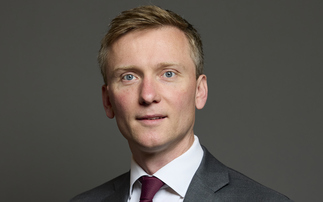As the world has begun to adjust to the impact of the COVID-19 pandemic, investors have turned their attention to environmental, social and governance (ESG) factors with renewed vigour to ‘build back better'.
In the first three months of 2020, global sustainable funds attracted $45.6bn of net flows compared with an outflow of $384.7bn for the overall fund universe, according to Morningstar data.
Through much of the last decade, sustainability was seen as an expensive ‘nice to have', which often could not be justified ahead of less sustainable but more profitable real asset investments.
Now, according to a study by Aviva Investors, more than 80% of global investors believe the pursuit of achieving ESG objectives is no longer at the expense of financial returns.
And while environmental credentials remain valuable to investors, there is an increased focus on the social elements of the acronym.
A survey of more than 1,000 insurers and pension funds from around the world found that employment and skills, health and wellbeing, and diversity and inclusion were the three areas deemed most important for their managers to focus on in real assets investing.
For European pension funds, the most important focus point for asset managers was climate transition risk, selected by 36% of respondents in this category, followed by employment and skills (34%), diversity and inclusion (33%), and human rights (33%).
Asset types
Elsewhere, the study found that social housing was one of the most popular subsets of infrastructure, with 42% of global pension fund respondents selecting this as an asset that was "particularly important to include" in a portfolio.
For European pension investors, the most important areas of infrastructure were healthcare (selected by 43% of investors), education (39%), social housing (39%) and broadband connections (38%).
Energy-efficient real estate is of growing interest to investors of all kinds, the study showed, and was the most popular "socially responsible asset" selected by respondents. More than half (58%) of global insurers said this was a particularly important asset to include in a portfolio, while 48% of global pension funds said the same.
Melanie Collett, Aviva Investors' head of asset management for real estate, agrees that energy efficiency is an important theme for property portfolios.
"We are focusing on the amenity of a building, health and wellbeing, air quality, ESG components, energy efficiency and enlivening the space," she says. "The whole touch environment is important and, through COVID, the ESG focus has gone right up the list of priorities."
Impact and returns
It is evident from the study that investors are eager for their allocations to have an impact beyond the financial return and income achieved.
On top of the interest in energy-efficient real estate, European pension funds also highlighted renewable energy sources and water and waste assets as important to their portfolios. European insurers were most keen on social infrastructure assets.
Ed Dixon, head of ESG for real assets at Aviva Investors, says: "We prioritise investment that will have some form of positive social and environmental impact, and by analysing that through extensive research.
"We have to look into the future. Assets and businesses without strong environmental and social performance will not necessarily be successful in five or ten years' time," says Dixon. "Similarly, we need to examine governance closely: we would not want to invest in infrastructure in a developing country where there are question marks over how our money is spent."
Net zero targets
Pressure is growing on companies to reduce their carbon emissions as investors and governments seek to uphold the pledges of the 2015 Paris Agreement, to keep global warming to below 1.5°C above pre-industrial levels.
This has given rise to organisations targeting a ‘net zero' carbon footprint and is beginning to feed through to the real assets universe. Almost all global insurance and pension fund investors are committed to or planning to achieve net zero, Aviva Investors' study shows, with Asian insurers the most advanced in their plans.
Dixon says: "On the product side, we are looking at launching strategies that meet the ESG criteria of a changing world; for example, real asset solutions that support the transition to net-zero carbon emissions."
Aviva Investors' full Real Assets Study is accessible here.
Important information
Except where stated as otherwise, the source of all information is Aviva Investors Global Services Limited (AIGSL). Unless stated otherwise any views and opinions are those of Aviva Investors. They should not be viewed as indicating any guarantee of return from an investment managed by Aviva Investors nor as advice of any nature. Information contained herein has been obtained from sources believed to be reliable, but has not been independently verified by Aviva Investors and is not guaranteed to be accurate. Past performance is not a guide to the future. The value of an investment and any income from it may go down as well as up and the investor may not get back the original amount invested. Nothing in this material, including any references to specific securities, assets classes and financial markets is intended to or should be construed as advice or recommendations of any nature. This material is not a recommendation to sell or purchase any investment.
In the UK, Issued by Aviva Investors Global Services Limited. Registered in England No. 1151805. Registered Office: St Helens, 1 Undershaft, London EC3P 3DQ. Authorised and regulated by the Financial Conduct Authority. Firm Reference No. 119178.
144029 - 31/10/2021






